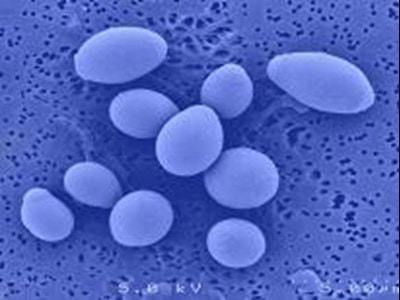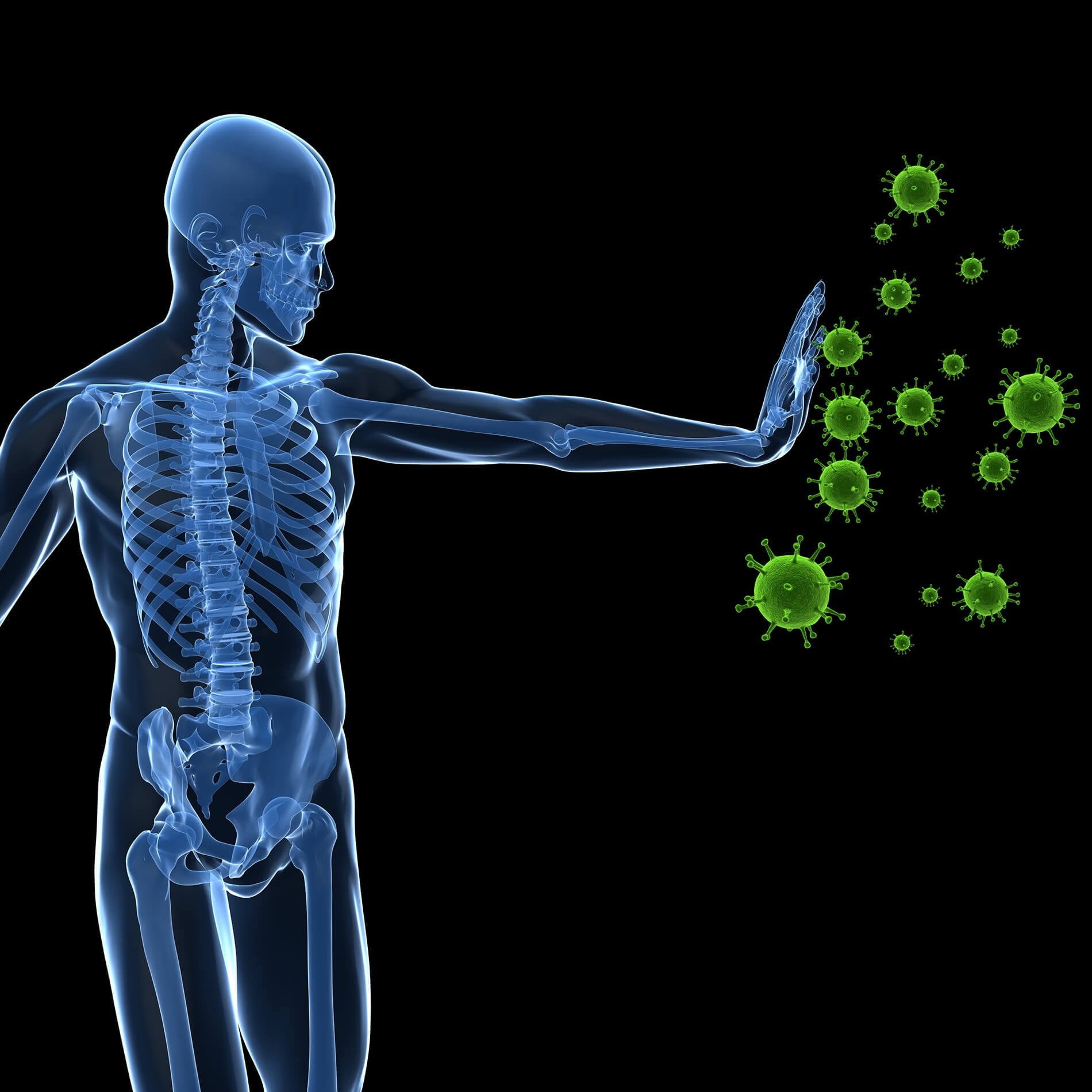Which probiotics are best for IBD?
Before looking at the evidence behind the use of probiotics in ulcerative colitis and Crohn's disease, it is important to understand the two different types of Inflammatory Bowel Disease (IBD), and their clinical presentations.
- Types of IBD
- Intestinal flora of IBD patients
- Probiotics for ulcerative colitis
- Probiotics for Crohn's disease
- Key takeaways of probiotics and IBD
Types of IBD
Both Crohn’s Disease (CD) and Ulcerative Colitis (UC) share some similarities in symptoms, such as diarrhoea, blood* or mucus in the stools and inflammation and damage to the intestinal wall. However, the defining difference between the two conditions is the location of the ulceration and/or tissue damage. Typically, ulceration in Ulcerative Colitis is limited to the colon, whereas in Crohn’s Disease the damage can occur at any point in the GI tract, from the mouth to the anus. Crohn’s Disease is therefore divided in to 5 sub-types, dependent on the exact location in the GI tract that the damage is located.
• Ileocolitis: affects the ileum and the colon
• Ileitis: solely affects the ileum
• Gastroduodenal Crohn’s disease: affects the stomach and duodenum
• Jejunoileitis: affects the jejunum
• Crohn’s colitis: affects only the colon
.jpg)
The different site of damage in the various forms of IBD is important when considering probiotic administration, as different bacteria live in different areas of the intestinal tract, and have different mechanisms of action. For this reason, most clinical trials looking at the potential for probiotic supplementation in Inflammatory Bowel Disease, focus on either Ulcerative Colitis or Crohn’s Disease, rather than grouping them both together.
Additionally, there are many other conditions affecting the GI tract that have an inflammatory component to them, however they are not typically classified as IBD. Such conditions would include Coeliac Disease, and Diverticula Disease.
Intestinal flora of IBD patients
It has been hypothesised for many years that alterations to the intestinal bacterial flora may contribute to the onset and progression of IBD. This is a theory that is now supported by clinical evidence, as several different research studies have found the composition of gut flora to be very different in IBD patients to healthy control patients. Three separate trials1,2,3all found greater numbers of anaerobic bacteria in faecal samples taken from Crohn’s disease sufferers than in healthy controls, with particularly elevated levels of Bacteroides.
Contrary to these studies, Giaffer et al4 found no difference in total anaerobes between active CD patients, inactive CD patients and healthy controls, but they did find more aerobes and Enterobacteria in active CD, and fewer Lactobacilli in CD patients than healthy controls.
Other research groups have focused their studies into the presence of possible pathogens in IBD, such as bacteria from the Mycobacteria and Listeria genus.
To date, the results from many of these studies are difficult to interpret and often contradictory. Imbalances in gut flora are generally found, supporting the theory that intestinal flora contributes to the pathogenesis of IBD, but the bacterial species involved often differs.
Understanding however, that dysbiosis is almost always observed in IBD patients is a step forward, even if the exact mechanics are not yet fully understood. As a logical progression from this finding, researchers have started to review the clinical outcomes of using different strains of probiotic bacteria and/or yeast in IBD patients and animal models of IBD.
So we have already looked at the increased prevalence of disruption to the GI flora in Crohn’s Disease and Ulcerative Colitis patients, as compared to healthy individuals, now let’s consider whether probiotics may help to support gut health for your clients.
Probiotics for Ulcerative Colitis
The same strain of non-pathogenic E.coli (E. Coli Nissle1917) as was trialled in Crohn’s Disease has also been extensively trialled in Ulcerative Colitis. This strain of bacteria has been compared with an anti-inflammatory drug used to treat IBD in three separate studies of UC patients. Perhaps the most conclusive of them, by Kruis et al7, showed that out of the 327 study participants, that were treated with either E.Coli Nissle1917 or 500mg of the drug three times daily, the relapse rates were similar in both groups, indicating that E.ColiNissle1917 may be as effective as anti-inflammatory drugs in preventing relapse in UC patients.
A multi-strain probiotic formulation has also been studied for UC. The combination product that was researched, contained three strains of Bifidobacteria, four of Lactobacilli and one of Streptococcus salivarius sp. thermophilus. In this study by Venturi et al8 twenty patients with inactive Ulcerative Colitis were given the probiotic formulation daily for a twelve month period, during which time remission was maintained in 15 out of the 20 study participants. Whilst a 75% success rate appears significant, this trial was not placebo-controlled, so it is difficult to draw any true conclusions.
Saccharomyces boulardii has also been studied in a small pilot study involving 25 Ulcerative Colitis patients that were experiencing a flare up of their condition. Ordinarily steroid treatment would be given in such a situation, however all 25 of these UC patients had had negative reactions to steroids in the past. In this study by Guslandi et al9 all 25 patients were given 250mg S. boulardii three times per day for four weeks, alongside their regular anti-inflammatory drug treatment. 17 out of the 25 patients achieved clinical remission in this time, as confirmed by endoscopic examination. Whilst this study lacked a control group, and was quite small in number, the results definitely warrant further study, and look promising at this stage.
In 2021 the probiotic strain Lactobacillus plantarum HNU082 (Lp082) was investigated and found to play a protective role in Ulcerative Colitis in mice10. At present no human trials have been undertaken using Lactobacillus plantarum HNU082 (Lp082).
Probiotics and Crohn’s disease
A non-pathogenic strain of E.coli (E. Coli Nissle 1917) has been one of the most clinically trialled probiotics with regard to Crohn’s disease. In a 1997 double-blind study by Malchow5E.Coli Nissle 1917 or placebo was taken daily for twelve months by 32 patients with active Crohn's disease. Both groups also received standard steroid treatment at the same time. The results showed that whilst remission rates were similar for both groups (suggesting no additional benefit to adding the probiotic to standard steroid treatment) the subsequent relapse rates were lower in the E.coli treated group (33% relapse versus 64%). This means that once remission had been achieved less of the probiotic group re-developed symptoms.
Whilst this particular strain of E. coli has shown probiotic potential, we would suggest practitioners wait for more research before seeking out any E. coli supplements, as of course other strains of this bacteria are well documented and widely known for their pathogenic effect on the human body. E. coli does not appear on the European Food Safety Authority's Qualified Presumption of Safety (QPS) list.

The well researched probiotic yeast Saccharomyces boulardii has also been extensively trialled in Crohn’s disease sufferers. In 2000, Guslandi et al6 divided 32 CD patients into two groups, and gave one group 1g of an anti-inflammatory drug used to treat IBD three times daily, and the other group 1g of the same drug twice daily in combination with S. boulardii probiotic, at a daily dose of 20 Billion CFU (split between 4 capsules). Over the course of 6 months, only one of the 16 patients taking 4 capsules of S. boulardii a day suffered a flare up of their symptoms. Of the 16 patients from the control group, that were solely given the anti-inflammatory drug, 6 patients experienced a flare up.
The fact that the relapse rate was significantly lower in patients treated with the drug in combination with S. boulardii, suggests a protective effect from the probiotic.
Key takeaways of probiotics for IBD
- More research is needed to determine the best probiotic strains for IBD, but Saccharomyces boulardii shows promising potential.
- Saccharomyces boulardii may help support gut health in Ulcerative Colitis and Crohn’s Disease, with diverse clinical applications.
- Clinical trials suggest that Saccharomyces boulardii can reduce the risk of symptom flare-ups in IBD patients.
- This probiotic has been specifically studied for its ability to support bowel health and reduce diarrhoea in IBD sufferers.
For any practitioners working with Crohn's Disease patients, you may be interested to read fellow Nutritional Therapist Kerry's article, about the effect of pharmaceutical Crohn's treatments on the gut flora: New study explores effects of Crohn's treatments on gut flora.
* NB: We do not recommend probiotics be taken by patients with blood in the stool without first consulting their doctor. More information on safety here, in the Probiotics Learning Lab.
References
- Roediger WEW, Duncan A, Kapaniris O, Miljard S. Reducing sulfur compounds of the colon impair colonocyte nutrition: implications for ulcerative colitis. Gastroenterology 1993;104: 802-9 [PubMed]
- Ruseler-van Embden JGH, Both-Patoir HC. Anaerobic Gram-negative faecal flora in patients with Crohn's disease and healthy subjects. Ant Leeuwenhoek 1983;49: 125-32 [PubMed]
- Swidsinski A, Ladhoff A, Pernthaler A, et al. Mucosal flora in inflammatory bowel disease.Gastroenterology 2002;122: 44-54 [PubMed]
- Giaffer MH, Holdsworth CD, Duerden BI. The assessment of faecal flora in patients with inflammatory bowel diseases by a simplified bacteriological technique. J Med Microbiol 1991;35: 238-43 [PubMed]
- Malchow HA. Crohn's disease and Escherichia coli. A new approach in therapy to maintain remission of colonic Crohn's disease. J Clin Gastroenterol 1997;25: 653-8 [PubMed]
- Guslandi M, Mezzi G, Sorghi M, Testoni PA. Saccharomyces boulardii in maintenance treatment of Crohn's disease. Dig Dis Sci 2000;45: 1462-4 [PubMed]
- Kruis W, Fric P, Stolte M. Maintenance of remission in ulcerative colitis is equally effective with Escherichia coli Nissle 1917. Gastroenterology 2001;120(suppl 1): A127
- Venturi A, Gionchetti P, Rizzelo F, et al. Impact on the composition of the faecal flora by a new probiotic preparation: preliminary data on maintenance treatment of patients with ulcerative colitis. Aliment Pharmacol Ther 1999;13: 1103-8 [PubMed]
- Guslandi, M. et al. (2003) A pilot trial of Saccharomyces boulardii in ulcerative colitis. European Journal of Gastroenterology & Hepatology. Vol. 15 pp. 697 – 698.
- Yuqing Wu et al., (2022) Probiotics (Lactobacillus plantarum HNU082) Supplementation Relieves Ulcerative Colitis by Affecting Intestinal Barrier Functions, Immunity-Related Gene Expression, Gut Microbiota, and Metabolic Pathways in Mice. Microbiology Spectrum, Dec 21;10(6):e0165122.

